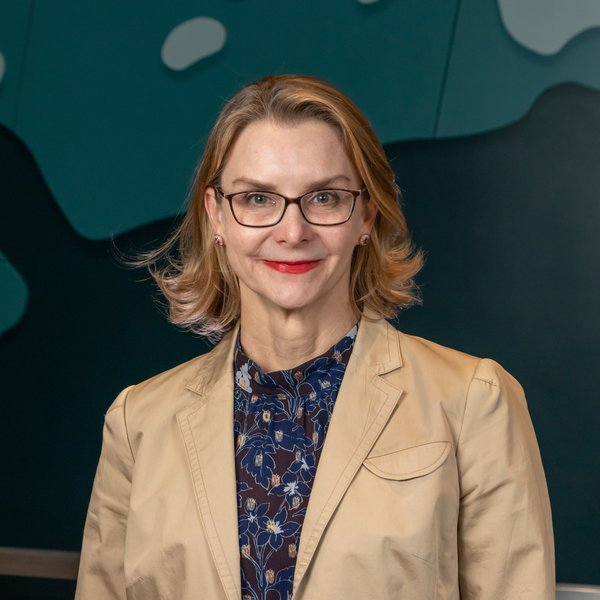Dr. Janet Duffy-Anderson | Source | Chief Scientific Officer at Gulf of Maine Research Institute

Dr. Janet Duffy-Anderson
Dr. Janet Duffy-Anderson is a fisheries research biologist and marine ecosystem ecologist who has worked in large marine systems around the United States including the middle Atlantic, Gulf of Mexico, the California Current system, the North Pacific, Gulf of Alaska, Bering Sea, and the US High Arctic. She served as the Program Manager for the Recruitment Processes Program at the NOAA Fisheries Alaska Fisheries Science Center and co-Lead for the NOAA’s Ecosystem and Fisheries Oceanography and Coordinated Investigations Program since 2015. Prior to that she served as a Principal Investigator at the Alaska Fisheries Science Center. She received her BS at Lafayette College (1990), her PhD at the University of Delaware, College of the Earth, Ocean, and Environment (1996), and conducted postdoctoral work at Rutgers University and the University of Washington. Dr. Duffy-Anderson has extensive experience in marine science including expertise in fisheries recruitment, fisheries oceanography, climate-ecosystem interactions, population connectivity, and fish early life history dynamics. For over two decades, Janet has worked to develop mechanistic approaches to understanding how climate mediates fisheries population variability, trophic shifts, and ecosystem change. She applies that understanding to the sustainable management of fisheries and ecosystems.
-
Gulf of Maine Research Institute
Chief Scientific Officer
-
Unprecedented die-offs, melting ice: Climate change is wreaking havoc in the Arctic and beyond
Scientists are seeing changes off Alaska that have never been documented before, as warming upsets a vast ecosystem and one of the world's vital fisheries.
Article -
Janet Duffy-Anderson named chief scientific officer at Gulf of Maine Research Institute
NEW HIRES The Gulf of Maine Research Institute has hired Janet Duffy-Anderson as its new chief scientific officer. Duffy-Anderson is trained as a fisheries research biologist and marine ecosystem ecologist. She previously worked at the National Oceanic and Atmospheric Administration’s Alaska Fisheries Science Center. Mission Broadband has announced the recent hire of Jeffrey Rogers as […]
Article
-
"You can think of it in terms of winners and losers,” said Janet Duffy-Anderson, a Seattle-based marine scientist who leads annual surveys of the Bering Sea for the National Oceanic and Atmospheric Administration’s Alaska Fisheries Science Center. “Something is going to emerge and become the more dominant species, and something is going to decline because it can’t adapt to that changing food web.”


